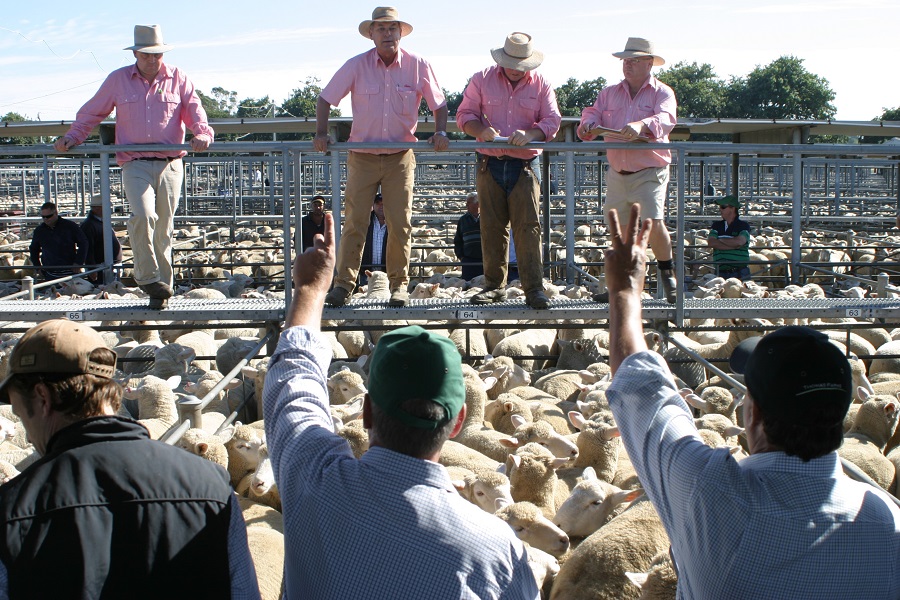Latest listings on Jobs Central recruitment page:
- Manager, Sheep Genetics – Armidale (Meat & Livestock Australia)
- Operations Manager – Meat Standards Australia (Meat & Livestock Australia)
- Graduate/Station Hand – King Island (AgCap)
- Cattle Stud Manager – Southern Highlands NSW (McLachlan Group)
- Head Stockperson – Macumba Station (S.Kidman & Co)
- Livestock Market Officer – Roma (NLRS)
- Sales Person – Rural Northern NSW (International Animal Health)
- Policy and Project Analyst (Australian Lot Feeders Association)
- Meat Process Workers (Thomas Foods International)
- Feedlot Livestock Hand (Whyalla Beef)
- Head Stockman – Walhallow Station (Walhallow Partnership)
Click here to access these and other exciting meat and livestock supply chain jobs currently listed on Jobs Central.

MORE than 65 percent of Australian companies report that retaining talent is a major issue for them, and nearly half are considering offering more generous compensation packages next year to keep employees on board, a recent business survey suggests.
While money certainly plays a part in building employee loyalty, it’s clearly not the only motivating factor keeping someone in today’s red meat supply chain work environment – whether that be a woolgrowing or lamb operation, a processing plant or a livestock transport business.
Study after study has shown that praise and recognition tend to build employee loyalty. People want to feel that what they do makes a difference. Money alone does not do this; personal recognition does.
Employers often fail to realise that some of the most effective things they can do to develop and sustain motivated, committed employees cost very little or nothing at all.
Here are some points to consider that are not related to financial compensation:
Interesting work
No one wants to do the same boring job over and over, day after day. And while any job will always require some boring, repetitive tasks, everyone should have at least a part of their job comprised of activity of high interest to them.
Information
Information is power, and employees want to be empowered with the information they need to know to do their jobs better and more effectively. And, more than ever, employees want to know how they are doing in their jobs and how the company is doing in its business. Open the channels of communication in an organisation to allow employees to be informed, ask questions, and share information.
Involvement
Managers today are faced with an incredible number of opportunities and problems and, as the speed of business continues to increase dramatically, the amount of time that they have to make decisions continues to decrease. Involving employees in decision-making, especially when the decisions affect them directly, is both respectful and practical. Those closest to the problem typically have the best insight as to what to do. Involving others in such a way increases their commitment and makes implementing new ideas or change easier.
Independence
Few employees, particularly those working in the bush, want their every action to be closely monitored. Most agribusiness employees appreciate having the flexibility to do their jobs as they see fit. Giving people latitude increases the chance that they will perform as managers anticipate – and bring additional initiative, ideas, and energy to their jobs.
Increased visibility
Everyone appreciates getting credit when it is due. Occasions to share the successes of employees with others are almost limitless. Giving employees new opportunities to perform, learn, and grow as a form of recognition and thanks is highly motivating for most people.
Strong relationships are vital in today’s economy
Strengthening employee relationships is even more necessary as companies downsize and lay off. In the event – due to drought, reduced herd size or other unforeseen circumstances – that your workforce shrinks and you need to do more with less, keeping quality employees becomes even more critical. As a manager, it is your job to bond your best people to your company through recognition. And you also must help direct and motivate your ‘core’ performers.
Simple rewards earn big returns
There are some relatively simple things managers can do that will earn big returns. For example, remembering employees’ birthdays and work anniversaries; find out what inexpensive rewards they value (for example, tickets to their favourite sport, band or a half day off to spend time with their families); make the most of formal service awards or milestones, such as five or ten year anniversaries, with some preparation and a group presentation. Walk around your team every day and talk to your people and thank them sincerely and often.
Creating a healthy functioning work environment begins with recognition. Your employees need it more than money, perks or titles. Recognition is one thing that is completely in your control.
But it is up to you to execute.
Source: Meat Processors Pty Ltd

HAVE YOUR SAY